Neurodiversity information for parents and young people
About greater trochanteric pain syndrome
This condition affects the muscles and tendons on the outside of your hip.
It is also commonly referred to as ‘trochanteric bursitis’, ‘lateral hip pain’ or ‘gluteal tendinopathy’.
Causes
There is often not a single cause or event. It is often associated with a change in activity such as increasing walking, starting a new hobby or decreasing activity levels. It can be a combination of small changes over time.
Other factors that contribute include:
- gaining weight
- prolonged time standing
- having a wider pelvis
- muscle tightness or weakness around the hip.
Symptoms
Symptoms can vary but it’s typical to have one or more of the following:
- aching around the outside of your hip and upper leg
- pain when lying on your side
- pain going uphill or upstairs
- pain when crossing your legs
- pain when standing on one leg
- pain when rising from a chair and on the first few steps after rest.
![]()
What you can do to help
There are a number of things you can do to help ease symptoms.
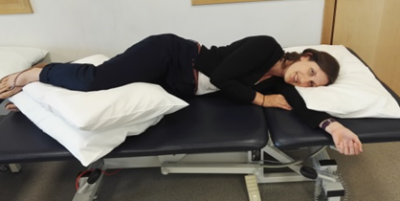
- Sleep on your back or on your non-painful side with a pillow between your knees.
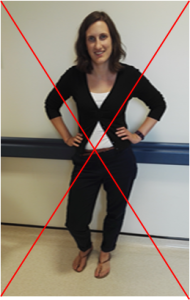
- sitting with crossed legs
- lying on your painful side
- sitting in low chairs
- standing with weight shifted to one hip (called hanging on the hip, see picture, left).
Exercises
The main treatment is a combination of reducing activities that make it worse, and gradual strengthening exercises.
Complete the following exercises every day. Start with the lower number of repetitions and gradually increase as they become easier. It is OK for there to be some discomfort when completing the exercises. Usually symptoms will improve within 3 to 6 months.
Push out against a belt around the knees
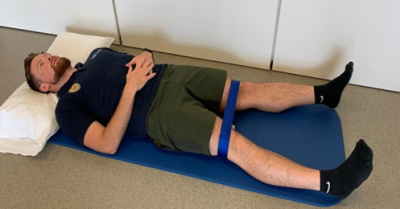
- Push both legs out against the belt.
- Hold for 15 seconds.
- Repeat this 5 to 10 times, twice a day.
Bridging
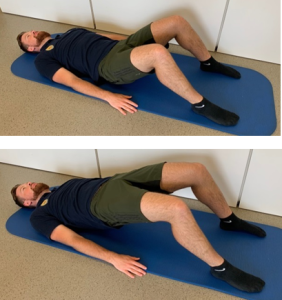
- Pushing through your heels and squeezing your buttocks, raise your bottom as far as comfortable.
- Slowly lower back down. Try not to hold your breath.
- Repeat 8 to 15 times, once a day.
Squatting
- Stand in front of a chair with feet hip width apart.
- Squat down by sitting your hips back, as if you are going to sit down.
- Push back up into standing.
- Repeat 8 to 15 times, once a day.
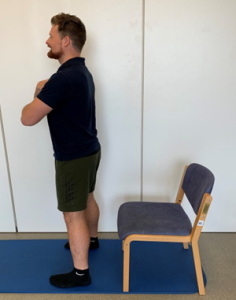
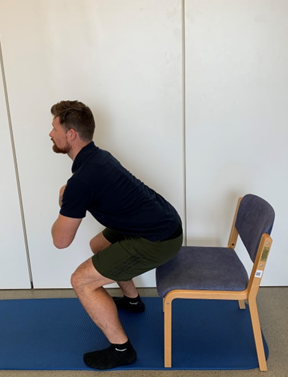
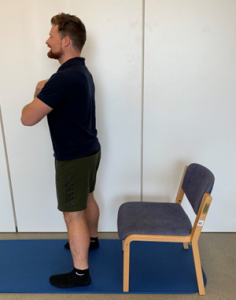
Side stepping
- Step side to side.
- Repeat 8 to 15 steps in each direction, once a day.
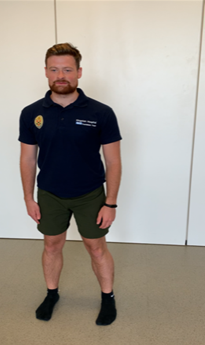
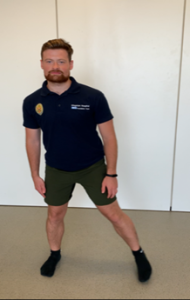
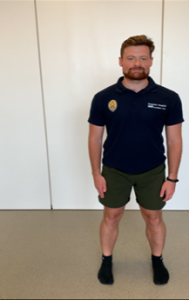
Contact information
Physiotherapy